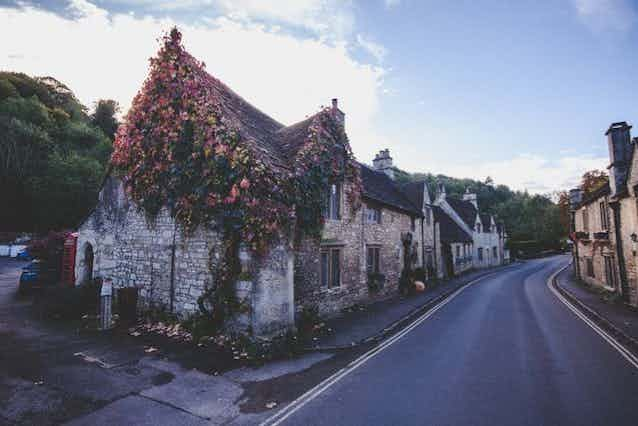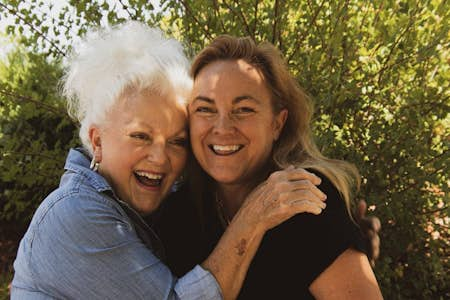Many of us who’ve spent many years in our local community feel strong links to the area. Maybe we sent our children to the local school, attend neighbourhood meetings, and are on first name terms with the people who run local shops. But not everyone feels the same.
Do we still chat to our neighbours?
A 2019 survey by The Eden Project found that over half the population hadn’t spoken to their neighbours in the last month. However, three quarters believed it would be better for our communities if we were closer to our neighbours.
So why don’t we strike up a conversation over the fence? The Eden project found several barriers that stop us in our tracks:
- Don’t want to be intrusive (36%)
- Don’t have a reason or excuse to talk to their neighbours (28%)
- Believe they have nothing in common with their neighbours (26%)
- Never see their neighbours (32%)
Neighbourliness post Covid-19
During Covid-19, it was as though our lives got smaller. We were restricted to our immediate local areas. For many of us, our neighbourhoods became the centre of our worlds.
But at the same time, we weren’t allowed to socialise with that community. A smile from a neighbour at the supermarket might be the only friendly contact we had outside our households. For months at a time, our social lives shrank into oblivion.
So, as the world opens up again, will we remember the importance of our local areas? Could this be the right time to start connecting with our neighbours?
We spoke to Lisa Cornwell from Mummascribbles, who told us: "We actually moved to a completely new area in February 2021, when we were in the middle of a harsh lockdown. It was tricky at the beginning as we didn't see anyone for a couple of months, but once restrictions were eased, we met our neighbours and we certainly now feel a part of our little cul-de-sac! I have cuppas with one neighbour, another sometimes dog sits for us, and another often pops round with treats for the kids (or she throws them over the fence!).
"The whole community is the most friendly and supportive I have ever experienced and I have way more acquaintances here than I ever did where we used to live - and we were there for 7 years! I honestly couldn't ask to live in a better little town and I can see why people who were born here have never left!"
How we feel about our communities
What is it that makes a strong sense of community? A feeling of belonging, maybe. The idea that we matter to each other? Or perhaps a shared belief that being together will benefit us?
According to leading psychologists in the 1980s, it’s all of the above, a theory still popular today. But everyone experiences their community differently. While one person feels a strong bond with others locally, another person might be sat at home wondering how to meet their neighbours.
Does age affect how we see our communities?
It seems younger residents feel particularly disconnected. Research shows that people aged 16-34 are less likely to feel that they belong to their immediate neighbourhood (51-55%) than older age groups (63-73%). They were also found to be less satisfied with their local area.
As the Cares family charity points out, older and younger people are isolated from their local community in different ways. Many older people have deep roots, but few connections. Meanwhile, younger students and graduates have hundreds of connections around the world maintained via social media but few roots in their local area.
To tackle the issue, the Cares Family run initiatives in five areas across the North West and London, connecting younger and older neighbours. They run social clubs and neighbour matching schemes to help reduce isolation and bring communities together.
Does your community reach people who live alone?
More and more of us are living alone. The UK saw a 16% rise in single-person households between 1997 and 2017, which was greater than the population growth.
It’s true that living alone and loneliness are not the same; many people are happy in their own company. But social isolation can lead to loneliness, which leaves us feeling down.
Creating inclusive communities is one way to combat the problem. Research shows that people who feel that they belong less strongly to their neighbourhood report feeling lonely more often. If you’d like to reach people who live alone or feel lonely, have a look at Age UK’s advice.
Older people are at particularly high risk of loneliness because of factors like living alone, limited mobility, and the passing of family and friends. With an ageing population, it's more important than ever to make our communities age-friendly.
Communities within communities
Many of our local areas are also made up of smaller communities. If you feel as though you don’t have strong ties to your neighbourhood, you might find a community in a smaller group.
For example, many communities are based on interests (hobby groups, for example), religious beliefs, age, background/experiences….there are lots of opportunities to find like-minded people.
What’s more, postcode isn’t the only way of forming a community. Online communities have sprung up for almost any interest area, including via Facebook groups. If you’re interested in joining one, you can start by searching for keywords.
Always make sure you’re safe online and don’t give away personal information. For more information about staying safe online, have a look at Age UK’s top tips.
Shopping locally to help the community
Many of our communities are home to independent businesses. But does shopping there benefit the local community beyond the shop owner?
Yes, according to recent research by Visa. They say that for every £10 we spend with a local business, more than a third stays within the area. For example, buying your Christmas tree from a local florist for £40 would mean £15.20 could stay locally.
This can help boost local jobs, benefit the environment, and build up your community at the same time. Local independent shops and cafés often host social groups and events, creating a sense of community. Without these, where would communities meet?
This applies to local makers markets and farmers markets, too. As Ellie Gill, campaign manager at Love Your Local Market told the Guardian, “markets can have a community value, as there is often a social purpose to stalls”.
Shopping locally is just one way to boost your local community. Here at Pension Times, we regularly publish articles about getting involved in your community. And remember, if you feel lonely or unhappy in your community, there are ways to get help. Age UK has a wealth of resources to help adults experiencing loneliness, as does the NHS website.








